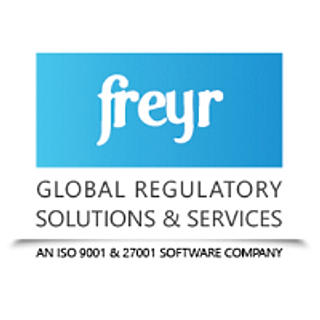EU SUP Directive: Key Challenges & Business Impacts
- Freyr Global Regulatory Solutions
- Jun 10, 2025
- 2 min read
The European Union Directive (SUP) was introduced to reduce the environmental impact of plastic waste, particularly in the marine environment. While marking key steps into sustainability and circular economy packaging, implementation of directives in sectors of various sectors presents several challenges, especially for those using plastic materials for packaging, product design and assurance of EPR compliance. What is the EU SUP directive? The EU SUP Directive covers the top 10 disposable plastic objects most seen on European beaches, including cutlery, plates, straws, stir-fry and certain food containers. The EU ban includes the ban on some objects, the goal of reducing the consumption of other objects, identification, sensitization campaigns, and the requirements for extended producer responsibility (EPR). Important issues for businesses 1. Material performance and testing Companies replacing prohibited plastics with alternatives must ensure that these alternatives meet EU composting and recyclability standards, such as the compostable plastic EN 13432. However, many alternatives have been exposed to issues relating to performance and regulatory approval issues. For example, materials can meet technical composting, but cannot function well under real conditions. This creates uncertainty regarding product liability. 2. Limited availability of alternatives The supply of scalable and compliant plastic alternatives is still limited. This shortage affects sectors such as food service, personal care and consumer goods, which rely on materials such as plastics for hygiene and function. With increasing demand, competition for compliant materials is expected. 3..The ambiguity of regulations and differences between nations Although the guidelines are in the EU, each member state has its own interpretation and assertion mechanisms, leading to inconsistent application. Companies working in several countries need to adapt their packaging adaptation strategies to increase costs and complexity. 4.. Economic impacts and redesign of costs Migrating to SUP-compliant products requires redesigning existing packaging, updating labeling, testing new materials, and investing in new manufacturing technologies. These changes can be particularly difficult for small and medium-sized businesses (small and medium-sized businesses). This can result in short supply of resources to adapt quickly. 5. Product Category Limitations Certain product categories such as plastic straws, stir-fry and polystyrene containers are mocks, even if they are used in niches and essential applications. Companies need to develop their products or packaging completely without a transition period in some cases. Conclusion Regulations on the individual birth of plastics reflect the growing global concerns about plastic pollution and lead to a clear path to sustainable product design. However, it also poses considerable compliance and operational challenges for the SUP guidelines. Companies must be proactive, informed and flexible in their responses. With proper regulatory support, businesses can transform these challenges into innovation options and lead them to the future of plastics. Freyr helps businesses address the challenges of these SUP guidelines by providing end-to-end regulatory support. From identifying approved alternatives and adjusting material compatibility tests to marking and document assurance, Freyr simplifies complex transition processes. Experts also help prepare regulatory submissions and manage cross-border compliance, helping businesses adapt quickly and cheaply. |











Comments